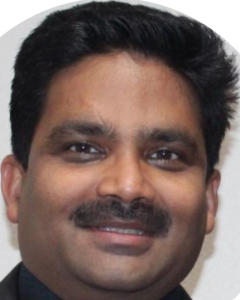May 3rd 2021
One Year of CARE Against COVID-19
One Year of CARE Against COVID-19 / Interview Part 1 /
On March 11, 2020 the novel coronavirus outbreak has been declared a pandemic. To combat the virus, multiple approaches are needed including therapeutic options that help those who are infected and those who are not able to be vaccinated or do not develop a strong immune response. In addition, there is a need for therapeutic approaches that help preparing for future outbreaks. Less than a month later, on April 1, 2020 the CARE consortium was formed to collaborate under as a public-private partnership to address these challenges as Europe’s largest research initiative in the fight against SARS-CoV-2 funded by the Innovative Medicines Initiative (IMI).
In this three-part interview series, the members of the CARE Executive Committee reflect on the first of five years of CARE, answering questions like:
- How was the team able to set up a consortium of 37 partners in a record time?
- How can a project of this size make notable progress albeit not working together face-to-face?
- How can CARE help to develop relevant therapeutic options?
Professor Yves Lévy as the academic coordinator, Marnix Van Loock as the EFPIA project leader and Kumar Singh Saikatendu as the project co-leader provided answers and insights below.
 |
 |
 |
Part 1 – REFLECTION & OUTLOOK: On track to make an impact
In April 2021 it is one year since the CARE consortium was initiated and brought together 37 highly skilled partners from academia and industry to find solutions for the coronavirus pandemic. Looking back, there has been notable progress made including the development of mature anti-SARS-CoV-2 antibodies and the complete screening of small molecule libraries of consortium partners.
What are the keys for this progress in only one year?
Yves Lévy: CARE indeed made significant progress in its first year. First and foremost, this has been made possible through the excellent work of the scientific teams, the effective collaboration between the partners and the complementary expertise of the public and private organizations.
Marnix van Loock: We should also not forget that the speed at which the full consortium came together was truly incredible. It was important for us to ensure a rapid start of CARE in April 2020 integrating partners’ COVID-19 projects, some of which were already ongoing since February 2020. We agreed upon the consortium’s research focus in just three days and evaluated more than 400 external collaboration requests from academia, research centers, small medium enterprises, and EFPIA member companies, of which 37 became our beneficiaries. Clear objectives, strong expert engagement and commitment, a transparent mode of communication and collaboration were crucial to ensure a robust set-up and successful initiation of the CARE consortium.
Kumar Singh Saikatendu: I agree with Marnix and Yves that the progress made by the team is truly commendable. I am confident that it is true when I say that combined with the knowledge created by scientists globally, we do know more about SARS-CoV-2 in one year than we did in 10 years of early HIV research.
The one-year anniversary of CARE marks that it is more than a year ago now that COVID-19 was identified (in late 2019) and changed, among other things the norms in working together. Reflecting on this, what were the biggest surprises and learnings for you?
Marnix van Loock: I’m very excited about the philanthropic attitude of all beneficiaries, resulting in openness, drive and dedication between the partners from industry and public sectors to create an impact on the current pandemic and towards future coronavirus outbreaks.
Yves Lévy: And this attitude again entailed positive aspects. Here are two of the ones I noticed: the accelerated discovery process of SARS-CoV-2 neutralizing antibodies and the smooth implementation of the partnership within CARE.
Kumar Singh Saikatendu: The biggest and most pleasant surprise for me was the extra mile that everyone went to collaborate with an open mind and dedication towards the end goal, which is to quickly create a medicine. Especially the rapid emergence of partnerships between pharma, academia, clinicians and funders is a trendsetting paradigm that can and should be replicated long after this initiative is behind us.
If we could fast-forward 12 months, what would you hope your reflections on this year will say?
Marnix van Loock: That we are on track to make impact! The accelerated development of the antibodies combined with the identification of small molecule antiviral candidates are gearing up towards clinical development. In addition, CARE is currently setting up a Clinical Trial Platform to align and expedite clinical studies, taking into consideration quality assurance, fast-track processes, patient information and access as well as the establishment of connections and synergisms with other platforms.
